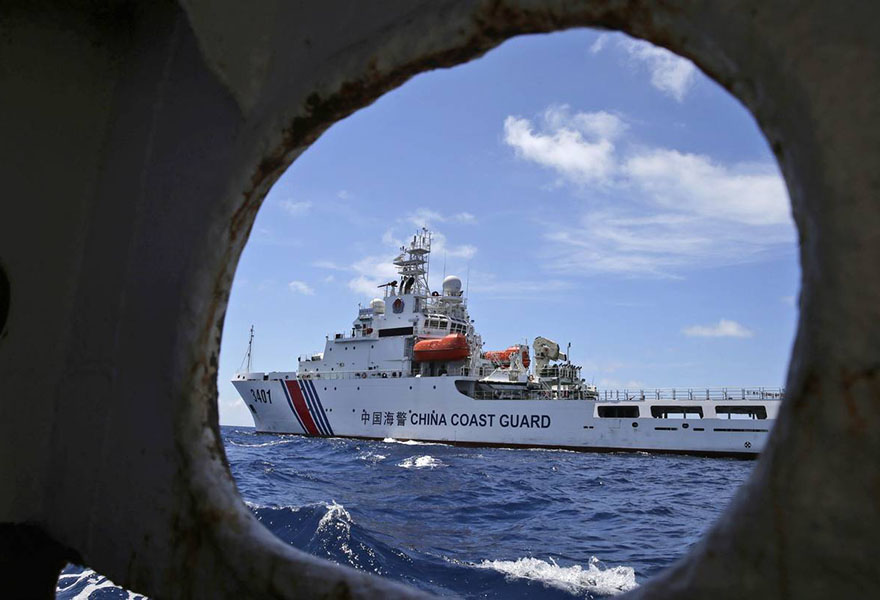China, US trade barbs over South China Sea
Beijing has voiced objection after Washington blamed Beijing of using intimidation to undermine the sovereign rights of Southeast Asian coastal states in the South China Sea.
The US Department of State issued a statement that disregards the efforts of China and ASEAN countries for peace and stability in the South China Sea, Beijing said shortly after the announcement of the statement.
China has increased presence in the South China Sea in recent years. Photo: AP |
The US deliberately distorts the facts and international law including the United Nations Convention on the Law of the Sea (UNCLOS), exaggerates the situation in the region and attempts to sow discord between China and other littoral countries, the Embassy of China in the US said on July 14.
“The accusation is completely unjustified. The Chinese side is firmly opposed to it,” the embassy said in a statement.
The embassy said “the situation of the South China Sea has remained peaceful and stable and is still improving.” China and other littoral countries have maintained dialogue and communication through consultation mechanisms on maritime affairs, and worked to promote cooperation over the South China Sea.
Within the framework of fully and effectively implementing the Declaration on the Conduct of Parties in the South China Sea, China and ASEAN countries are advancing the consultation on a Code of Conduct (COC) in the South China Sea and are making visible progress, the Chinese embassy said.
China accused the US of flexing muscles, stirring up tension and inciting confrontation in the region under the pretext of preserving stability. In addition, Beijing criticizes Washington of using UNCLOS to attack China while refusing to ratify the Convention itself.
| US Secretary of State Mike Pompeo. Photo: NYtimes |
Beijing's statement came after the US Department of State said that China's claims to offshore resources across most of the South China Sea are completely unlawful as the Asian giant has stepped up aggression in this disputed sea.
“Beijing uses intimidation to undermine the sovereign rights of Southeast Asian coastal states in the South China Sea, bully them out of offshore resources, assert unilateral dominion, and replace international law with “might makes right”, US Secretary of State Mike Pompeo said in a press statement on July 13.
“The world will not allow Beijing to treat the South China Sea as its maritime empire,” the US State Secretary added.
“America stands with our Southeast Asian allies and partners in protecting their sovereign rights to offshore resources, consistent with their rights and obligations under international law. We stand with the international community in defense of freedom of the seas and respect for sovereignty and reject any push to impose “might makes right” in the South China Sea or the wider region,” he noted.
Washington has expressed concerns over China’s aggression in the resources-rich South China Sea, through which some US$5.3 trillion worth of goods transits annually.
Regarding COC, Emeritus professor Carl Thayer, the University of New South Wales, Canberra, said that no planned negotiations on the South China Sea Code of Conduct have taken place this year because of the coronavirus pandemic.
The last ASEAN-China Senior Officials Meeting was held in October 2019 in Da Lat, Vietnam. Planned meetings in Brunei in February and the Philippines in May were not held, he added.
China is the direct beneficiary because it has steadily asserted its sovereignty over the South China Sea during the pandemic and created new “facts on the ground” such as creating two new administrative districts to administer the South China Sea, renaming eighty features in the sea, and challenging oil exploration by Malaysia.
“In other words, China has not exercised self-restraint but has taken advantage of Covid-19 to enhance its position and gain an advantage at the negotiating table," the professor emphasized.













